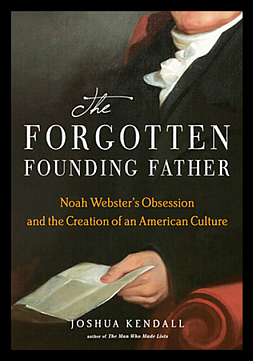- HOME
- INTRO TO THE FORUM
- USE AND MISUSE
- BADLY WRITTEN, BADLY SPOKEN
- GETTING
TO KNOW ENGLISH - PREPARING FOR ENGLISH PROFICIENCY TESTS
- GOING DEEPER INTO ENGLISH
- YOU ASKED ME THIS QUESTION
- EDUCATION AND TEACHING FORUM
- ADVICE AND DISSENT
- MY MEDIA ENGLISH WATCH
- STUDENTS' SOUNDING BOARD
- LANGUAGE HUMOR AT ITS FINEST
- THE LOUNGE
- NOTABLE WORKS BY OUR VERY OWN
- ESSAYS BY JOSE CARILLO
- Long Noun Forms Make Sentences Exasperatingly Difficult To Grasp
- Good Conversationalists Phrase Their Tag Questions With Finesse
- The Pronoun “None” Can Mean Either “Not One” Or “Not Any”
- A Rather Curious State Of Affairs In The Grammar Of “Do”-Questions
- Why I Consistently Use The Serial Comma
- Misuse Of “Lie” And “Lay” Punctures Many Writers’ Command Of English
- ABOUT JOSE CARILLO
- READINGS ABOUT LANGUAGE
- TIME OUT FROM ENGLISH GRAMMAR
- NEWS AND COMMENTARY
- BOOKSHOP
- ARCHIVES
Click here to recommend us!
READINGS IN LANGUAGE
This section features links to interesting, instructive, or thought-provoking readings about the English language. The selections could be anywhere from light and humorous to serious and scholarly, and they range widely from the reading, writing, listening, and speaking disciplines to the teaching and learning of English.
The nationalist whose name became synonymous with “dictionary”
What we know today as American English had its beginnings from the linguistic efforts of Noah Webster, who wanted America not only culturally separated from Britain but also to have a unified American language independent from British English. How Webster pursued these nationalistic goals is fleshed out in Joshua C. Kendall’s The Forgotten Founding Father: Noah Webster's Obsession and the Creation of American Culture (G. P. Putnam’s Sons, 355 pages), which persuasively argues that the author of the 1828 American Dictionary of the English Language was truly one of the founders—if unheralded—of America as an independent and united nation.

The innovations that Webster brought to bear on the English language are so well known that they have largely overshadowed his personal life story. In Kendall’s narrative retelling, however, a portrait of Webster as an indefatigable, obsessively driven, and not so likable person emerges. Indeed, Kendall presents compelling evidence to show that Webster was an arrogant, condescending, humorless, and socially tone-deaf individual who alienated and insulted his friends, political allies, and potential professional contacts.
Despite being afflicted with what is now known as an obsessive-compulsive personality disorder, or perhaps because greatly energized by it, Webster became a compleat overachiever, putting up America’s first daily newspaper, publishing an English spelling book that sold millions of copies and that led to the enactment of early copyright law, published a “cleaned up” edition of the Bible, and came up with his landmark work, the American Dictionary of the English Language. This highly innovative dictionary supplanted Samuel Johnson’s English dictionary of 1755, ultimately gaining acceptance as the standard for America and making Webster’s name synonymous with the word “dictionary.”
Read Jesse Sheidlower’s “Noah Webster, Founding Father” in The New York Times now!
Read Joshua C. Kendall’s “An Overview of Noah Webster’s Life” in the Los Angeles Times now!
ABOUT THE AUTHOR:
Joshua C. Kendall is an award-winning freelance journalist whose work has appeared in numerous publications including The Boston Globe, The Wall Street Journal, Psychology Today, Businessweek, The Los Angeles Times, and The Washington Post. He received his BA, summa cum laude, from Yale University where he studied comparative literature, later doing graduate work in comparative literature at Johns Hopkins. For excellence in reporting on psychiatry, he has received national journalism awards from both the National Mental Health Association (now Mental Health America) and the American Psychoanalytic Association. He has previously written The Man Who Made Lists, a biography of Peter Roget, originator of Roget’s Thesaurus.
ANOTHER INTERESTING READING:
In “E-Business Is the Buzz at Book Fair,” an article that came out in the May 25, 2011 issue of The New York Times, Julie Bosman writes about three major trends in book publishing—authors sidestepping publishers to self-publish their work, book publishers diversifying into retail book sales; and the book retailing giants entering the gadget business. Bosman reports: “E-books have exploded, surpassing print sales for some new releases. The struggles for many brick-and-mortar bookstores have deepened as their customers began downloading books onto their e-readers from home rather than heading to stores.”
Read Julie Brosman’s “E-Business Is the Buzz at Book Fair” in The New York Times now!
Click to read comments or post a comment
View the complete list of postings in this section
(requires registration to post)







